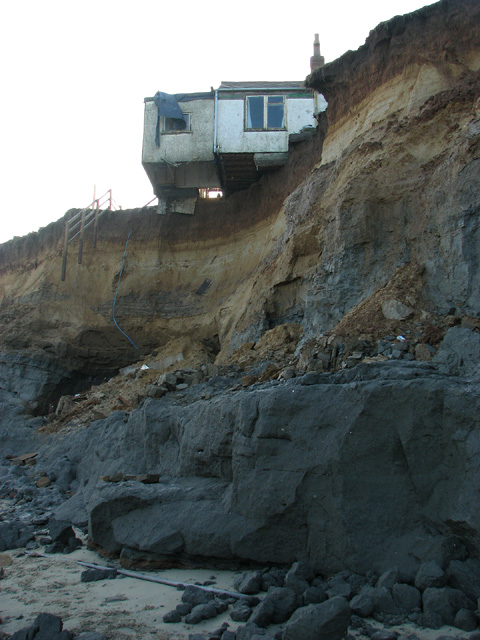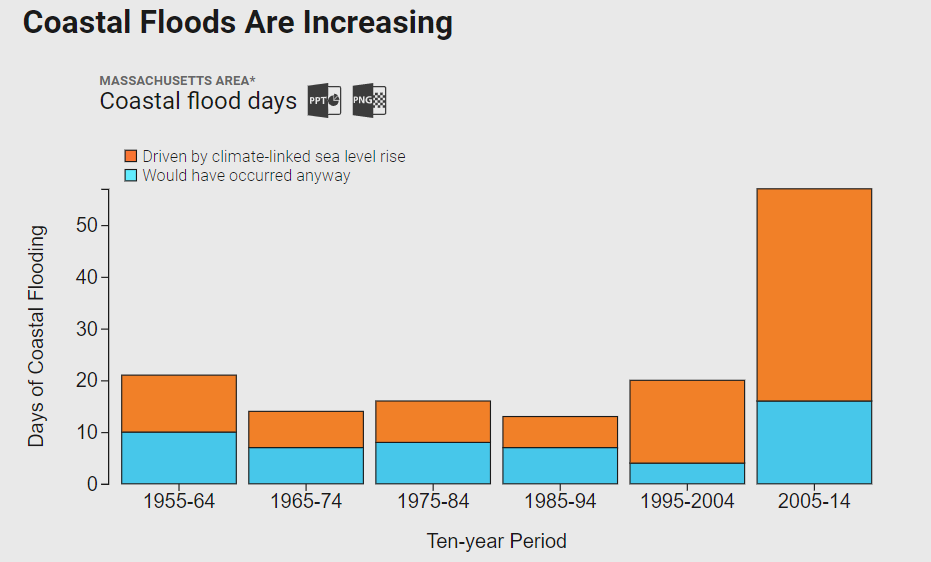Rising seas, rising problems: Using locally relevant data to prepare solutions.

What is a Nor’Easter?
In January of this year, coastal communities on the East Coast were hit with a Nor’easter that set record snow falls in Boston. The storm brought more than just snow, with severe winds, power outages, and flooding. Nor’easters are a type of storm caused by low pressure moving along the coast. Pressures from a storm moving along the coast cause strong winds to push water toward the shore. Some coastal areas in the state were completely underwater around high tide from the storm surge flooding. Waves toppled over seawalls, flooding streets. The island of Nantucket saw the worst of it. There were even reports of young men using a canoe to travel through the flood streets of Nantucket. Storm surge from the nor’easter also caused significant erosion to the beaches along the coast. Local papers in Boston have reported on stories of storm surge erosion cases on Cape Cod where houses fall into the sea. One house in Truro, MA lost twenty 20 feet of Earth underneath it. It was standing on pilons for months as surge after surge eroded the remaining due, as local planning officials tried to decided how to move the historic building. It was moved at the time of this writing.
The Issue
While nor’easters are an event that New England has long been familiar with, climate change has already begun to exacerbate the severity and frequency of these storm events, along with their consequences. Storm events, extreme high tides, and rising seas intensify flooding and put vulnerable communities at risk. The number of coastal flood days in Massachusetts, shown in the graphic below, increased drastically in the last two decades.

Solutions & Our Contributions
It is becoming increasingly clear how important it is for communities to prepare for a changing climate. As the implications of climate change come to a head, effects will be felt disproportionately across populations, communities, regions, and industries. It’s vital that we assess the areas in which we are vulnerable and are resilient.
rbouvier consulting recently partnered with the Southern Maine Planning and Development Commission (SMPDC) to assist in their economic resilience planning project for coastal York County, where we were tasked with conducting a socio-economic impact assessment of sea-level rise and storm surge to six coastal communities in southern Maine.
Geospatial experts from GEI Consultants were also partnered on the project. With capabilities of today’s geospatial technology, GEI Consultants were able to provide us with the physical vulnerabilities of the project area at different sea-level rise and storm surge scenarios. They combined data on businesses, roads, and other important infrastructure with floodplains to produce geospatial layers and other data products that show what of the infrastructure in the area will be impacted at 1.6 and 3.0 feet of sea-level rise.This information allowed us here at rbouvier consulting to determine what culturally and economically significant infrastructure is at risk of flooding or impaired access, such as economic service areas or beaches that draw tourists into Maine.
Using business-level data on sales revenue and employees, along with data on local demographic and economic conditions, rbouvier consulting was able to assess how sea-level rise will affect output and employment in the area. We determined what industries in the area are most at risk based on the businesses that are within floodplains, and related the risks posed to those industries to the health of the local and regional economies. Conducting a socio-economic impact assessment of sea-level rise tailored to the local conditions of the communities in the project area allowed us to pinpoint areas of economic vulnerability and resilience, and subsequently determine a number of adaptation and mitigation strategies we feel best prepares these communities for a changing climate.
If you’re interested in talking to rbouvier consulting about climate change solutions and the types of services we offer, please send us an email.
Blog Post by Averi Varney.